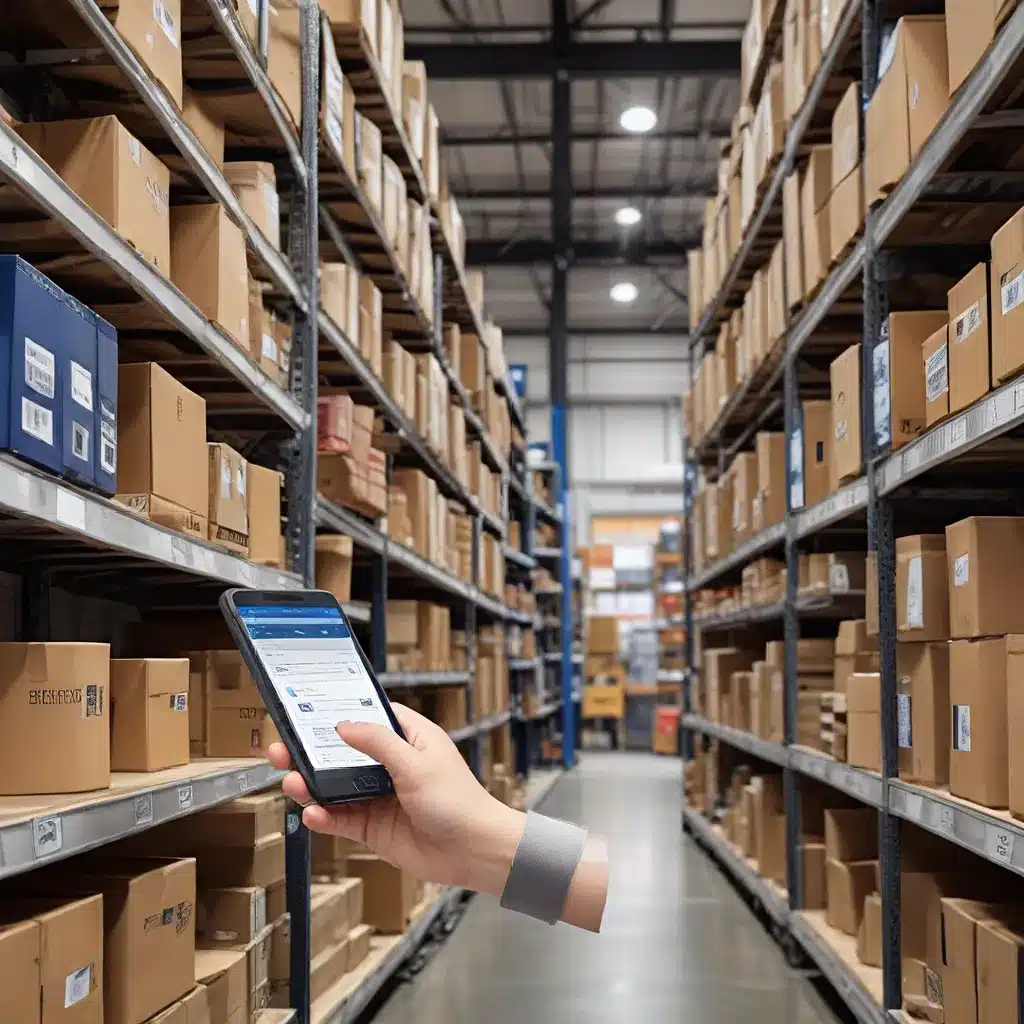
In today’s fast-paced, data-driven world, RFID (Radio Frequency Identification) and NFC (Near Field Communication) technologies have emerged as transformative solutions for streamlining supply chain operations and optimizing inventory management. These wireless communication protocols are revolutionizing the way businesses track, monitor, and manage their assets, delivering unprecedented levels of visibility, efficiency, and accuracy.
Bridging the Gap Between RFID and NFC
While both RFID and NFC fall under the category of wireless identification and data capture technologies, they differ in their range and functionality. RFID uses radio waves to transfer data between a reader and a passive or active tag attached to an object, enabling long-range tracking and identification. This makes RFID particularly well-suited for large-scale inventory management and asset tracking applications.
On the other hand, NFC operates over shorter distances, typically within a few centimeters, allowing devices to communicate when in close proximity. This technology finds various applications in contactless payments, access control, and interactive marketing, offering enhanced convenience and security for users.
Enhancing Inventory Visibility and Accuracy
One of the primary benefits of integrating RFID and NFC technologies into supply chain management is the improved visibility and accuracy they provide. By automating data capture processes, these technologies eliminate the need for manual tracking and recording, reducing the risk of human errors and ensuring the integrity of information exchanged between systems.
RFID tags on inventory items and NFC-enabled devices enable real-time monitoring of stock movements, from production to distribution, providing businesses with a comprehensive view of their supply chain. This continuous data capture ensures accurate inventory counts, reduces the risk of stockouts or overstocking, and allows for optimized replenishment and streamlined order fulfillment.
Streamlining Warehouse and Logistics Operations
In addition to enhancing inventory management, RFID and NFC technologies also play a crucial role in optimizing warehouse and logistics operations. RFID tags on pallets and products enable automated inventory tracking, reducing manual labor and improving accuracy. NFC-enabled devices, on the other hand, facilitate quick identification of assets and equipment, enhancing asset management efficiency.
Moreover, the real-time status updates and accurate picking and packing processes enabled by RFID and NFC technologies optimize order fulfillment, ultimately leading to improved customer satisfaction.
Overcoming Integration Challenges
While the benefits of RFID and NFC integration are well-documented, businesses may face certain challenges in the implementation process. These include initial investment costs, compatibility issues with existing systems, and concerns regarding data security and privacy.
To overcome these hurdles, companies can start by conducting a thorough cost-benefit analysis to justify the investment in RFID and NFC integration. Additionally, selecting compatible hardware and software solutions, as well as working with experienced vendors, can help mitigate compatibility issues.
Implementing robust data encryption and access control measures can address security and privacy concerns, ensuring that sensitive information remains protected. Furthermore, providing comprehensive employee training on the use and benefits of RFID and NFC technologies can foster acceptance and adoption within the organization.
Real-World Successes and Applications
Through years of experience and numerous successful implementations, leading providers like CPCON have showcased the effectiveness of RFID and NFC technologies across various industries.
In the retail sector, CPCON deployed RFID tags and readers to enable real-time inventory tracking and reduce stockouts for a large clothing retailer, resulting in improved inventory accuracy and increased sales.
In the healthcare industry, CPCON implemented NFC-enabled patient wristbands and mobile devices to streamline patient identification and medication administration processes in hospitals, enhancing patient safety and workflow efficiency.
Moreover, in the logistics and transportation sector, CPCON integrated RFID technology into shipping containers and vehicles to optimize asset tracking and route management for a global logistics company, leading to cost savings and improved supply chain visibility.
These real-world examples illustrate the versatility of RFID and NFC technologies and their ability to address diverse business challenges, driving tangible results across various industries.
Emerging Trends and Future Advancements
As the technologies continue to evolve, RFID and NFC are poised to play an even more pivotal role in shaping the future of supply chain management. Upcoming advancements include enhanced integration with IoT platforms, enabling seamless data exchange between devices for more comprehensive supply chain visibility.
Additionally, advancements in RFID tag miniaturization and NFC chip efficiency will further expand their application possibilities, particularly in wearable technology and smart packaging solutions. Moreover, developments in blockchain integration will enhance the security and transparency of data exchanged through RFID and NFC systems, fostering trust and accountability across supply chain networks.
These advancements promise to revolutionize supply chain management, unlocking new opportunities for efficiency, innovation, and value creation across industries. As businesses strive to achieve greater agility, resilience, and competitiveness in the evolving landscape, RFID and NFC technologies will undoubtedly remain key enablers of transformation.
Embracing the Future of Inventory Management
RFID and NFC technologies offer a strategic advantage in supply chain automation, providing real-time visibility, streamlined operations, and enhanced customer experiences. By embracing these innovative solutions, businesses can unlock the full potential of their inventory management and drive operational excellence, cost savings, and competitive advantage in today’s dynamic market.
As a leader in the field, CPCON is committed to guiding its clients through the successful integration of RFID and NFC technologies, tailoring solutions to their unique needs and industry requirements. By partnering with CPCON, organizations can stay at the forefront of supply chain innovation and reap the rewards of enhanced efficiency, accuracy, and customer satisfaction.